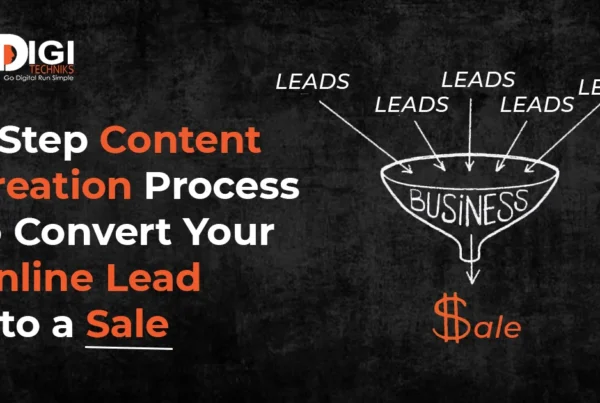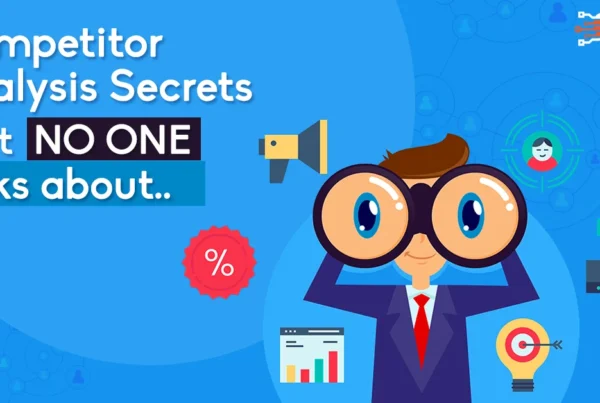Ever wondered why you usually pick up Nike or Adidas sneakers off the shelf rather than a generic brand? You may or may not have thought about it, but it was their branding that got you.
Whether it’s about creating a personal or a corporate identity, branding plays a critical role of building trust. If your audience begins to look at you as legitimate and authentic, you will gain their trust. That’s what translates to higher sales and ROIs in the long run.
In fact, if you are a CEO, CXO or a marketing professionals, a personal brand can often be just as important as the public perception of your company or product. This can mean bad news for you if you’re not currently taking advantage of personal branding for professional and corporate success.
Personal branding is just one step ahead of corporate branding
Think about Apple — isn’t it hard to separate the myth of the man from the legend of the company itself? Even today, the public perception of Apple is deeply connected to Steve Jobs. And it isn’t even as if Jobs was building a public persona just for the sake of branding. He was communicating his message to the world and making sure everyone understood what made Apple different. That’s the reason we trust Apple products, because we know the values that go behind their design and production.
The exercise of branding can be critical for the growth and success of any business, product or individual. When you choose what ‘face’ to put out there into the world, you are committing to a set of values and principles that you and your company stand for.
What you stand for and what your company represents cannot be too far apart. There has to be a synergy between your personal brand and your company’s, otherwise that can be confusing for customers and employees alike.
As someone in a leadership position — whether you’re a CEO, CXO, President, Vice President, or marketing professional — don’t let this opportunity to communicate with your audience and build a personal brand pass you by.
Personal branding strategy: Differentiate yourself from the rest of the pack
So, why did you pick up that Adidas shoe after all? The off-brand shoe could have been more durable and cheaper to boot.
When a company’s marketing becomes ubiquitous — you see it all around you, and consistently see the same message — that’s when they’ve successfully built a brand. In a competitive market, where competitors new and old are constantly innovating and launching rival products or services, branding is the most crucial aspect of differentiation.
Trust, credibility and perception of value are often a consequence of branding itself. It’s easier to convince someone who’s never bought Adidas before to trust the quality and durability of that sneaker, isn’t it?
How to create a personal branding strategy
There are three important words you need to keep in mind if you want to build a brand — Visibility, Credibility and Profitability (VCP). One leads to the other — the more visible you are, the more credible you seem. The more credible you are to people, the more likely they will choose you over competitors, and that directly hits your bottom line.
You might now be wondering how to gain said visibility as an individual. Before you even head the PR route, networking can be the lever you need to get the word out. So get out there and leverage your contacts. Word-of-mouth can be incredibly powerful in this context — it will strengthen your existing network, get you more opportunities and maybe even convert your contacts to contracts!
Another way to create your personal brand is to amplify your presence on social media. Figure out which platforms work for your sector — it could be LinkedIn, Twitter or maybe even Instagram. Consider setting up a personal blog and share your articles on social media. Weigh in during online discussions related to your niche, and establish your credibility as someone with experience, wisdom and authority over your domain.
As someone who understands solar technology, for instance, you will become the go-to person for solar innovations, whether it’s vehicles or batteries. Over time, you will emerge as a thought leader in that space and perhaps get opportunities for consulting, mentoring, advisory and even international lectures and talks. Even if you’re an expert within a narrow niche, you can still become a micro or nano-influencer in that area.
In the long term, personal branding can even help you influence your peers and through them, your industry as a whole. You could even build a loyal following that will be ready to invest in you and pay for your product or services.
When you build a personal brand that gives you a unique sense of identity. You will establish your reputation as an expert in the sector, as king or queen of your domain. And that’s where the advantages of personal branding go beyond corporate brands. If you decide to move onto another company or your next business venture, your reputation will follow you.
There’s no quick fix to personal branding
While it’s absolutely critical to build your personal brand these days, it may not be an easy task, and it’s certainly not an overnight job. More importantly, it demands a certain amount of time and efforts. Therefore, you, as a business owner or marketer, may have to divide your time between personal brand creation and your core tasks. This is often the reason why personal branding gets pushed to the back burner for most people. But if you’ve understood the importance of branding yourself and are serious about leveraging the competitive edge it provides, it’s a great idea to seek help from a professional branding agency like ours.
Conducted by digital marketing expert and mentor Sharan Kulkarni, our branding consultations have helped many business owners to build and grow their personal brands. The time we spend understanding our clients’ businesses, goals, and visions, combined with our track record of branding successes enables us to create brand identities that are unique and distinct.
Learn the exact fail-proof system that we use for our clients to convert their social media contacts to contracts without playing the guesswork game or spending a ton of money
Do you want to get a personalised 1-to-1 discovery session?
Book your 1-to-1 discovery call with us today!
FAQs
1. What is personal branding and why is it important?
Personal branding is the practice of marketing yourself and your career as a brand. It helps build trust, credibility, and recognition, making it easier to convert contacts into business opportunities.
2. How can personal branding help convert contacts into contracts?
A strong personal brand creates a lasting impression, builds trust, and showcases your expertise—making contacts more likely to do business with you.
3. What are the key elements of a powerful personal brand?
Authenticity, consistency, online presence, thought leadership, and value-driven communication are essential components of an effective personal brand.
4. Can social media improve personal branding?
Yes, social media is a crucial tool for personal branding. It allows you to share insights, engage with your audience, and amplify your credibility in your niche.
5. Who can benefit from building a personal brand?
Entrepreneurs, freelancers, professionals, and consultants across industries can benefit by establishing authority and attracting more business.



